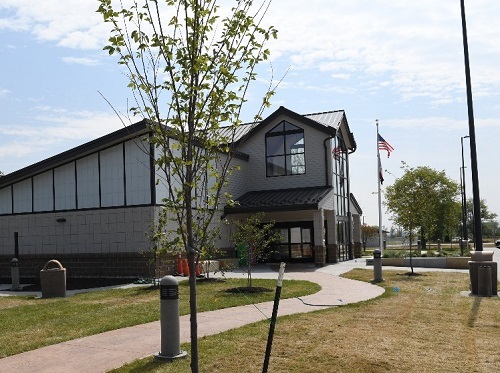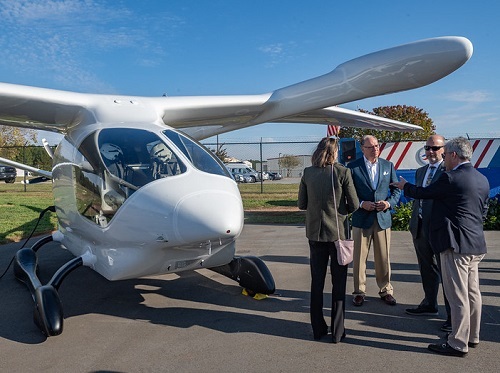One of the newest “next generation” highway rest areas built and maintained by the Iowa Department of Transportation also doubles as a museum of Native American culture.
[Above photo by the Iowa DOT]
In a blog post, the agency said each of its “next generation” rest areas features a specific “theme” to help travelers learn more about what makes Iowa unique.
Traveling northbound on Interstate 29 in western Iowa, the agency’s newest rest area is nestled near the Loess Hills just west of Glenwood and highlights the history of the Native American tribes of that area and how they are connected to what archaeologists call the “Central Plains Tradition.”
In 1968, archeologists spent about four years uncovering 19 earth lodge homes in advance of the construction of U.S. 34. Those archaeologists also discovered that about 300 of these structures once dotted the landscape near modern-day Glenwood.
“What we did at the rest area was use the information from those excavations to tell the history of the area,” noted Brennan Dolan, cultural resource project manager for Iowa DOT’s District 2.
“It’s less about the artifacts that were uncovered, and more about the context they provide and the dynamic stories they tell about the people who lived here,” he added. “I think it’s really cool that 50 years after these excavations, we finally get to tell this story of this human experience through transportation and contemporary art.”
Inside and outside of the rest area, interpretive plaques, statues, and murals commissioned by four Native American artists describe the history of the Native American tribes that resided in the area.
Iowa DOT added that this rest area – like all of its “next generation” models – is as “functional as it is beautiful,” offering free Wi-Fi and an observatory balcony at the rear of the building to give you a glimpse at the Loess Hills.
Archeological teams working for state departments of transportation across the country uncover and preserve a wide range of important historical finds.
In October 2022, the Kentucky Transportation Cabinet helped establish a new website highlighting more than 100 prehistoric and historic archaeological sites across the state’s 64 counties.
In August 2022, archaeologists from the Maryland Department of Transportation helped excavate two small Colonial-era cabins near the historic Elkridge Furnace in Howard County, MD, located on land originally purchased for a highway project.
In January 2022, the Colorado Department of Transportation debuted a documentary called “Durango 550 – Path of the Ancestral Puebloans” to show how the agency worked with archaeologists and regional Native American tribes to document, study, and ultimately share the discoveries unearthed near Durango in southwest Colorado.
And in July 2023, the Washington Department of Transportation illustrated in a blog post the important connections between the sciences of archeology and transportation infrastructure construction.


